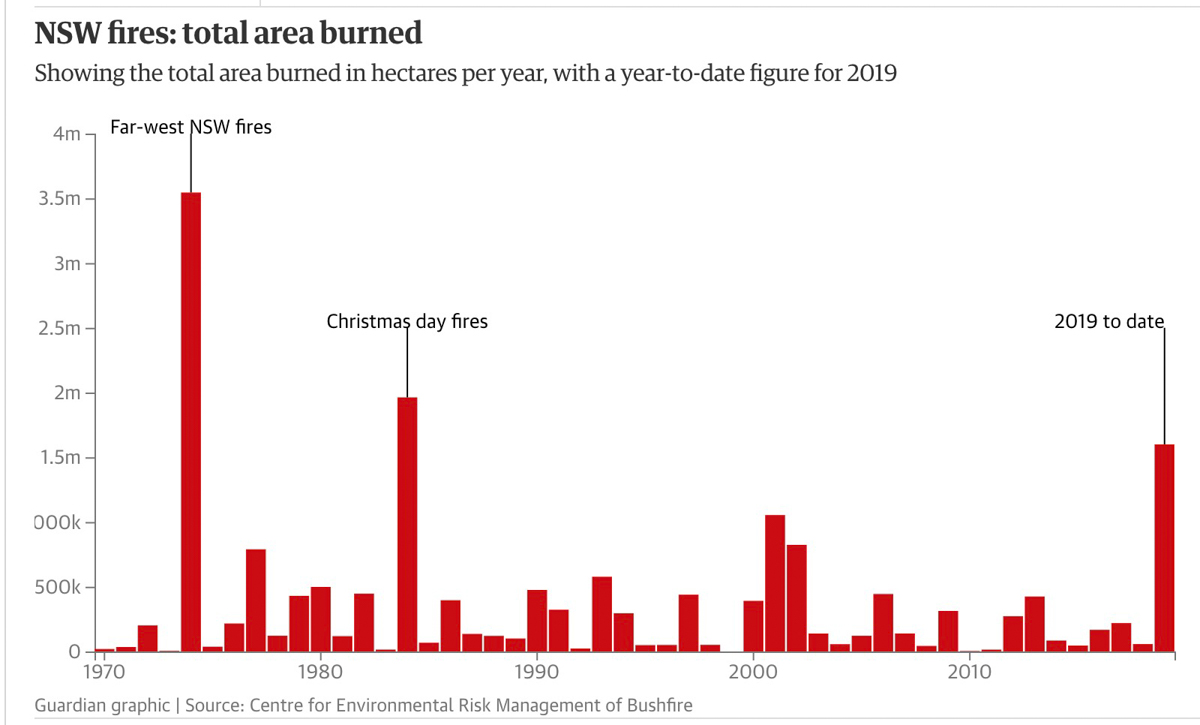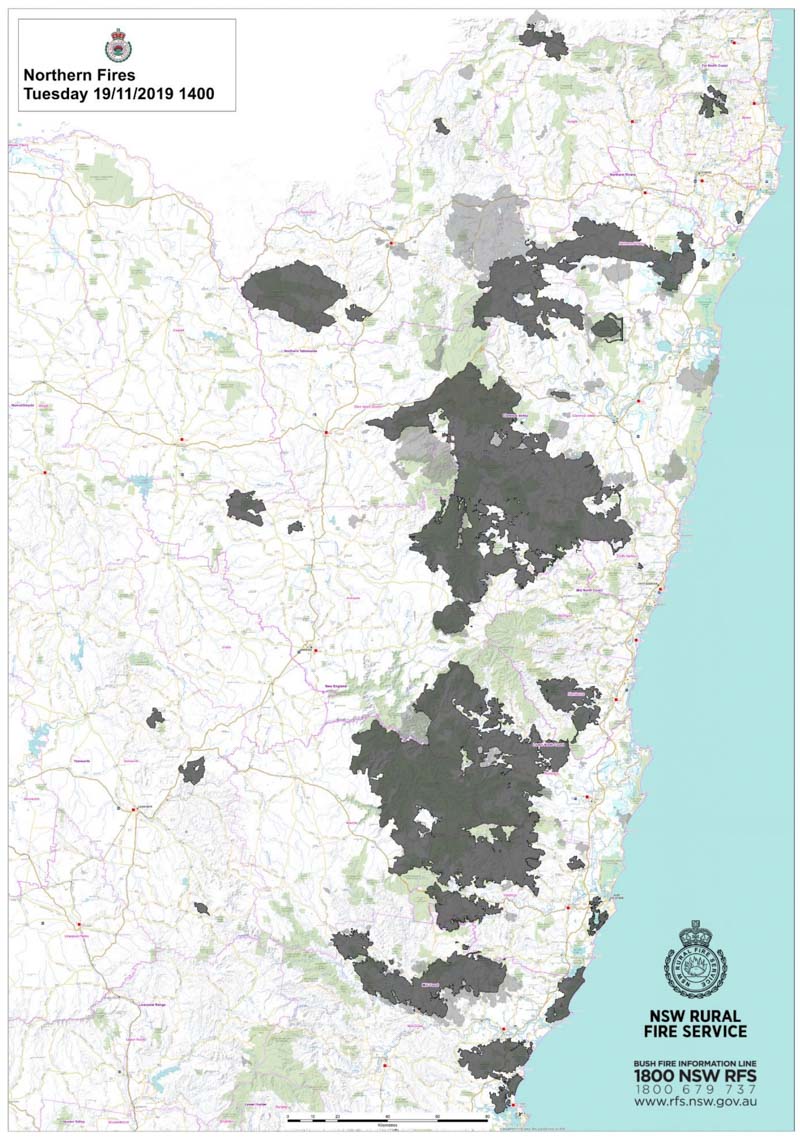The recent large bushfires in New South Wales have killed more than 1,000 koalas and burned 80 percent of their habitat, according to Deborah Tabart, chair of the Australian Koala Foundation.
From Forbes.com:
Recent bushfires, along with prolonged drought and deforestation has led to koalas becoming “functionally extinct” according to experts.
Functional extinction is when a population becomes so limited that they no longer play a significant role in their ecosystem and the population becomes no longer viable. While some individuals could produce, the limited number of koalas makes the long-term viability of the species unlikely and highly susceptible to disease.
Deforestation and bushfires destroy the main nutrient source of koalas, the eucalyptus tree. An adult koala will eat up to 2 pounds of eucalyptus leaves per day as it’s main staple of nutrients. While eucalyptus plants will grow back after a fire, it will take months, leaving no suitable food source for koalas and starvation a likely scenario for many.
There is a movement in Australia for the government to pass a bill that was introduced in 2016 but never passed. The Koala Protection Act would protect habitats and reduce or prevent hunting of the animals.
The screenshot at the top of this article is from a video showing a woman rescuing the badly injured koala. Click here to see it, but some may find it disturbing.
The New South Wales Rural Fire Service stated on November 19 that the perimeter of the fires in their state so far this fire season was over 6,000 kilometers (3,728 miles). Six people have died, 600 homes have been destroyed, 1.65 million hectares (4.1 million acres) have burned, and the season is not even halfway over. The acres burned to date in 2019 is the third highest annual total since 1970.




By the way, National Geographic is now saying that this information is wrong. The idea that the koalas are ‘functionally extinct’ is incorrect as is the 80% of their habitat has been burned this year. The Australia Koala Foundation has been overstating the impact.
Just because an area has burned does’t mean the habitat has been destroyed permanently. Eucalyptus evolved with fire and is often unharmed by fire. The fires were moving quickly, so the residence time of the fire was low, so in all likelihood next spring plenty of the trees will resprout just fine. Now for the animals themselves, that is a different story unfortunately.
Several friends and I in the United States are praying very hard for the koalas, other wildlife and people of Australia for the fires, heat wave and drought to end and for the rescued to heal well. ??????????
If the wildlife officials knew these fires were going to burn the koala habitat why did they not even attempt to rescue as many as they could. It didn’t burn all in a day. Begs the question of why was there no plan even before the fires. It was inevitable
I think we (non-Austalians) sometimes forget this is a country with a population of only 25million people and 85% live in urban areas along the coast. That means far fewer resources (tax money, equipment, manpower) available to fight fires, rescue wildlife, etc.
Just for comparison, Australia averages 8 people per square mile while the US has 93 people/square mile. That’s a pretty big difference in terms of resource availability/density.